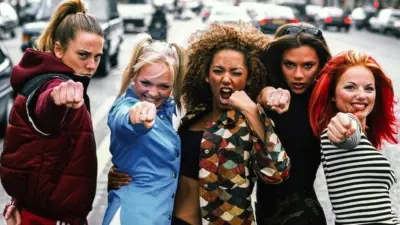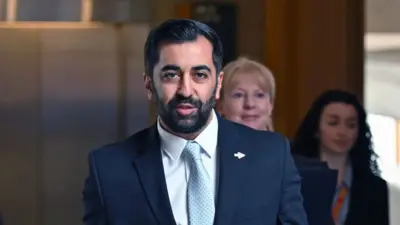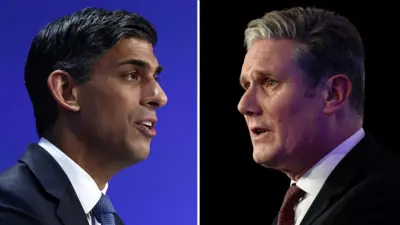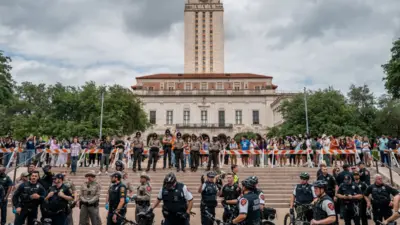We've updated our Privacy and Cookies Policy
We've made some important changes to our Privacy and Cookies Policy and we want you to know what this means for you and your data.
Katty Kay: The most exciting thing about becoming Swiss
- By Katty Kay
- US special correspondent
Image source, Getty Images
Last year I became a Swiss citizen. It was a three-year battle of will (mine) over bureaucracy (theirs). I won. I have my grandmother to thank.
I now have an elegant Swiss passport, the right to live anywhere in Europe, the theoretical chance to buy property in Switzerland and, more exciting than any of that, I have the right to vote.
I haven't voted in almost two decades. I'm British but I have lived abroad so long that I lost my right to vote in the UK. I'm not American, so I can't vote in the country I live in. For years I've been disenfranchised.
Now I get to vote again. A lot. We Swiss take voting as seriously as on-time trains and perfectly constructed wood piles.
Every few months my local Swiss authority posts a packet to my house in Washington that contains a ballot paper with the next set of referendum questions, and a pamphlet with useful background reading on the different issues up for vote. It's all printed in Switzerland's multiple national languages. It's quite a thick packet.
Since getting my citizenship, I've already voted on issues as varied as tobacco advertising, the quality of nursing care and depoliticising the judicial system. I became a citizen too late to vote to enshrine cycling into the constitution. Pity. America has a right to bear arms, the Swiss have a right to cycle. How can you not love this country?
How it works in Switzerland
- The Swiss vote in parliamentary elections every four years
- But Switzerland is a direct democracy so they regularly have their say on other matters too
- Three or four times a year they can vote on national and local issues
- Sometimes they spring a surprise - last year they rejected key climate change measures
I suspect the Swiss get bored of voting every three months but I am relishing being a tiny cog in the massive machinery of state. I feel better, less guilty. Without a vote, I had become a passive citizen. I was a bystander to democracy, I wasn't a participant.
Since coming into office, Joe Biden has spoken repeatedly about the tectonic struggle between democracy and autocracy. It's been the leitmotif of his presidency. His argument is that democracy must deliver for its people if it's going to survive. But there's another side to that social contract. We citizens have to deliver for democracy as well.
For a start, we have to bother to vote.
It's an activity America is famously bad at. In the 2020 election, one of the most consequential in recent history, only 62% of eligible voters bothered to turn out and vote. That was a modern day high. The UK doesn't do much better, 67% voted in its last general election.
It doesn't have to be this way. Iceland, Israel and Turkey all have much higher voter turnout.
Last weekend 70% of the Hungarian electorate turned out to give Prime Minister Victor Orban a much bigger win than expected. The opposition says Mr Orban's illiberal policies made it an unfair fight, they called it a "legally massaged election." An authoritarian leader consolidating power in the heart of Europe will put strain on the continent, and the EU is clearly worried. Within days of his re-election, Brussels cut funds to Hungary for breaching the rule of law.
Some democracies are fairer than others. Even the worst however, to echo Winston Churchill, are worth protecting.
I grew up all over the Middle East, in countries that don't have elections. I learned young that there are too many people around the world who don't have a vote at all, for us to simply squander ours. I am not a curmudgeon by nature, but the longer I couldn't vote as an adult, the more draconian I became about the act of voting. If I ran the world, I'd be tempted to take a leaf out of Australia's book and make voting mandatory.
Of course it's not just the lack of participation that weakens liberal societies.
Twenty-first century democracies are hotbeds of social and economic inequality. The poor get poorer and the rich get richer. Many democracies, like the US, have such polarised political systems that you can't get laws passed that would make lives better. They've become virtually ungovernable. Long-term challenges, like climate change, get kicked down the road as politicians focus their efforts on short term gains, like getting re-elected.
Democracies aren't giving the next generation the tools they will need to be responsible democratic citizens in a complicated, changing world. Our kids need lessons on how to spot real news from fake news and how to avoid baseless conspiracy theories that undermine the strength of democracy itself.
Image source, Reuters
The false conspiracy perpetrated by former US President Donald Trump that he won the 2020 election has become the rationale for a wave of new laws across the US that make it harder to vote. It's also the reason Americans' belief in the system itself is growing shaky. A recent NPR/Ipsos poll found 64% of Americans believe US democracy is at risk of failing. The sentiment is felt most strongly among supporters of Donald Trump. But those new laws may undermine Democrats' faith in the system too.
If the next US presidential election is decided in states with those new voting laws, it's possible we'll see angry Democrats then take up the mantra of a stolen election. It's alarming how easy it is to undermine people's faith in democracy with a lie. Before the invasion of Ukraine, the fragility of America's democracy was what alarmed foreign observers here.
I am part of a generation that has taken political pluralism for granted. Decades of peace produced a failure of imagination. Despite the war tales our parents told us, we couldn't envisage that a way of life we'd all got used to might disappear if we didn't defend it.
Ukraine has snapped us awake. It has shown us both the risks, and, more inspiringly, what it means to really care for democracy. In a war they didn't choose, Ukrainians are fighting, and dying, for the right to free elections, to the rule of law, and an impartial media, for the right to be a democratic country. Their bravery puts our laziness to shame.
Top Stories
Features & Analysis
Most read
Content is not available








